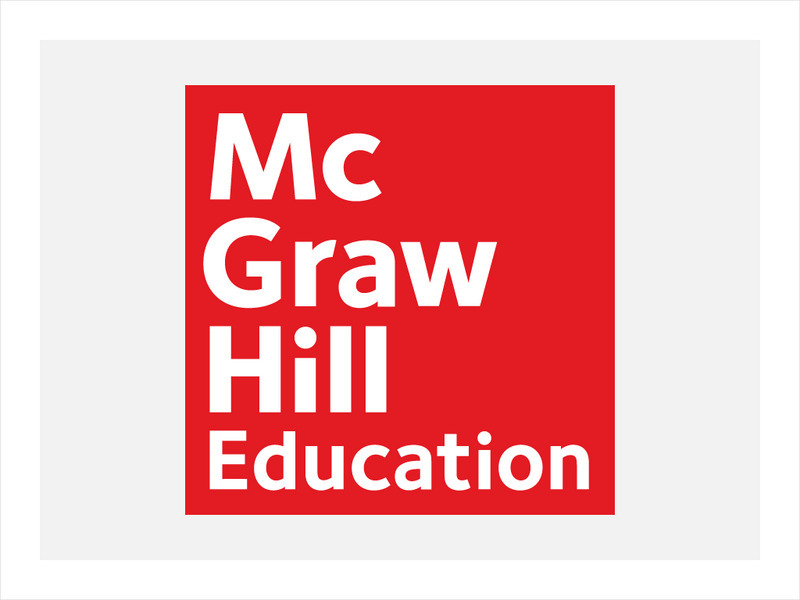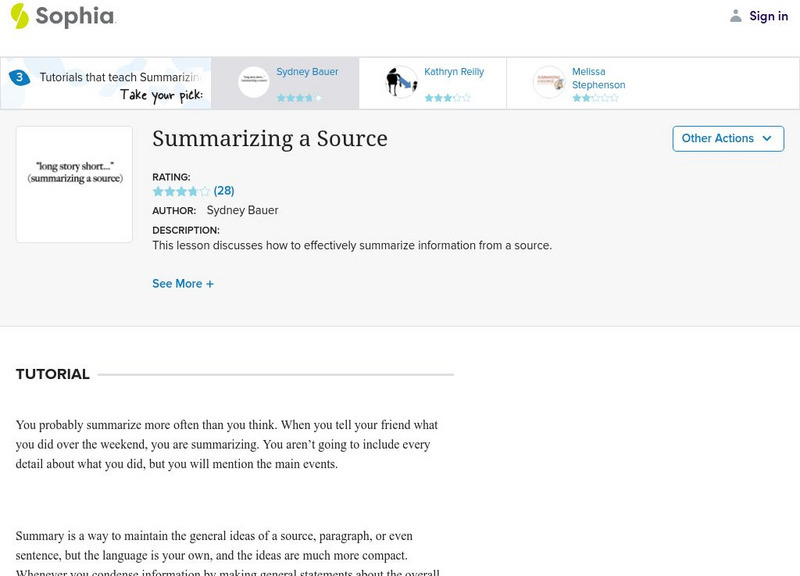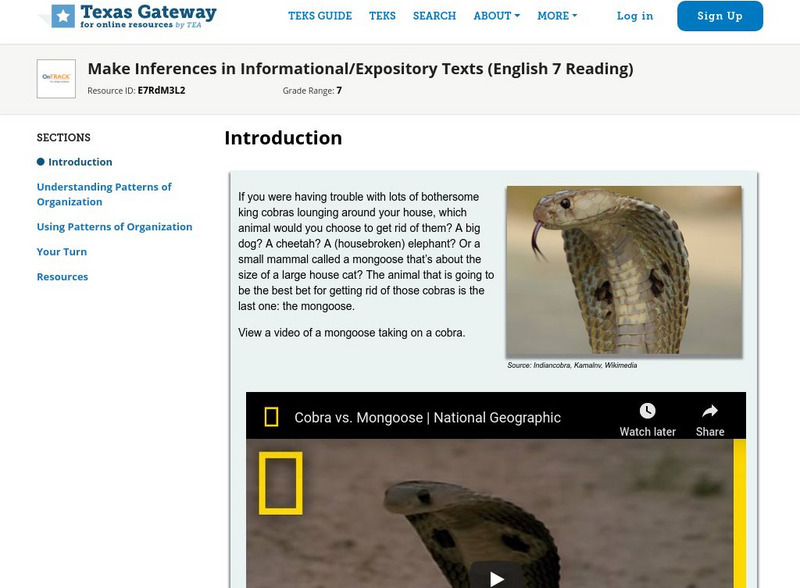Texas Education Agency
Texas Gateway: Synthesize Ideas in Informational/expository Text
[Accessible by TX Educators. Free Registration/Login Required] Learn how to synthesize and make logical connections between ideas within a text and across two or three texts representing similar or different genres and support with...
Texas Education Agency
Texas Gateway: Summarize Informational/expository Text
[Accessible by TX Educators. Free Registration/Login Required] You will learn how to summarize main ideas, supporting details, and relationships among ideas within expository text.
CommonLit
Common Lit: Where Did I Come From
CommonLit.org is a wonderful resource to use in a Language Arts classroom. Each story or article is accompanied by guided reading questions, assessment questions, and discussion questions. In addition, students can click on words to see...
AdLit
Ad lit.org: Classroom Strategies: First Lines
First Lines is a strategy in which students read the beginning sentences from assigned readings and make predictions about the content of what they're about to read. This pre-reading technique helps students focus their attention on what...
AdLit
Ad lit.org: Classroom Strategies: Power Notes
Power Notes is a strategy that teaches students an efficient form of organizing information from assigned text. This technique provides students a systematic way to look for relationships within material they are reading. Power Notes...
AdLit
Ad lit.org: Content Area Literacy: Science
The demands of comprehending scientific text are discipline specific and are best learned by supporting students in learning how to read a wide range of scientific genres. Besides text structures emphasizing cause and effect, sequencing...
AdLit
Ad lit.org: A Summary of "Writing Next"
What does research tell us about effective teaching techniques to help adolescents develop their writing skills? This article summarizes Writing Next, a 2007 study of adolescent writing instruction.
University of California
University of Cal: Critical Thinking in an Online World
This article discusses why and how to encourage the development of critical thinking skills for students conducting research on the Web. The author even presents an overview of a project that you could adapt to your class.
Polk Brothers Foundation Center for Urban Education at DePaul University
De Paul University: Center for Urban Education: I Can Identify and Infer Character Traits[pdf]
Students will identify character traits directly and inferentially with the help of this graphic organizer. Students will summarize their findings after completing the graphic organizer.
Polk Brothers Foundation Center for Urban Education at DePaul University
De Paul University: Center for Urban Education: I Can Infer Character Traits and Support [Pdf]
Students can use this graphic organizer while making inferences about characters in a story or history text. Students will collect text evidence in the chart to support their character trait inferences.
Polk Brothers Foundation Center for Urban Education at DePaul University
De Paul University: Center for Urban Education: Classify and Summarize Information [Pdf]
This learning module contains a link to graphic organizers that will help students categorize content and comprehend short and extended texts. The graphic organizers are designed to be applied to reading nonfiction passages in science...
Polk Brothers Foundation Center for Urban Education at DePaul University
De Paul University: Center for Urban Education: I Can Classify Facts and Opinions [Pdf]
A T-Chart is provided for students to use as they classify facts and opinions. Students will explain how to determine facts and opinions after completing the T-Chart.
InterLink Language Centers
Interlink Language Centers: Reading Exercises Science
An interactive exercise for students to use while developing an understanding of how to read scientific informational texts. The text is presented one paragraph at a time and difficult vocabulary words are defined as footnotes. Then...
McGraw Hill
Mc Graw Hill: Informational Text: Determine Central Idea and Supporting Details
To understand a text, you must understand the central idea of the story. Learn how to recognize the central idea and supporting details with this article. Click the links at bottom right.
Polk Brothers Foundation Center for Urban Education at DePaul University
Depaul University: Center for Urban Education: Classify Facts and Opinions [Pdf]
Students will find three lessons about facts and opinions in this learning module. The following topics are linked in the module: contrast and evaluate fact and opinion; classify facts and opinions; and locate and classify facts.
University of Illinois
University of Illinois Extension: Is It What I Think or What I Know? (Fact or Opinion)
This short lesson provides a fairly simple way to teach young students the difference between fact and opinion.
E Reading Worksheets
E Reading Worksheets: Fact and Opinion Lessons
In this learning module, students will learn more about the differences between facts and opinions. A PowerPoint presentation and related activity are provided to reinforce the topic of facts vs. opinions. This module is designed to...
Science Education Resource Center at Carleton College
Serc: Reading Reflections
An exercise consisting of three reflective questions that students respond to after completing an assigned reading in any curriculum area. The task promotes skills in critical thinking and self-assessment.
E Reading Worksheets
E Reading Worksheets: Fact and Opinion: Reading Test 3
A 25-question quiz where students must identify statements as fact or opinion. Results can be printed, saved, or emailed.
Sophia Learning
Sophia: Summarizing a Source
Information that can be read or listened to that discusses two methods of how to write effective summaries as well as how to avoid plagiarism when summarizing informational texts. Finally, examples of literary summaries are provided....
Other
Center for Media Literacy: What Is "Critical" Viewing?
Understand the term "critical viewing" as it relates to visual literacy. Learn how to assess the media around you in order to become more knowledgeable and not easily manipulated by what you see.
Polk Brothers Foundation Center for Urban Education at DePaul University
De Paul University: Center for Urban Education: I Can Infer About a Story or an Event [Pdf]
Students will use this graphic organizer to help them make an inference about a story or an event. Students will list the literal text evidence and then make an inference about the text evidence.
Texas Education Agency
Texas Gateway: Make Inferences in Informational/expository Text
[Accessible by TX Educators. Free Registration/Login Required] By using different organizational patterns as guides, learn how to make subtle inferences and draw complex conclusions while distinguishing factual claims.
Texas Education Agency
Texas Gateway: Make Inferences in Informational/expository Texts
[Accessible by TX Educators. Free Registration/Login Required] Use different organizational patterns as guides for summarizing and forming an overview of different kinds of expository text while distinguishing factual claims from...










![De Paul University: Center for Urban Education: Classify and Summarize Information [Pdf] Unit Plan De Paul University: Center for Urban Education: Classify and Summarize Information [Pdf] Unit Plan](https://content.lessonplanet.com/knovation/original/78057-7ba90e0b8b82fde8e26d306a4af31f79.jpg?1661787062)


![Depaul University: Center for Urban Education: Classify Facts and Opinions [Pdf] Unit Plan Depaul University: Center for Urban Education: Classify Facts and Opinions [Pdf] Unit Plan](https://content.lessonplanet.com/knovation/original/119988-719af6c927af61affa025c27754c7fae.jpg?1661787067)





